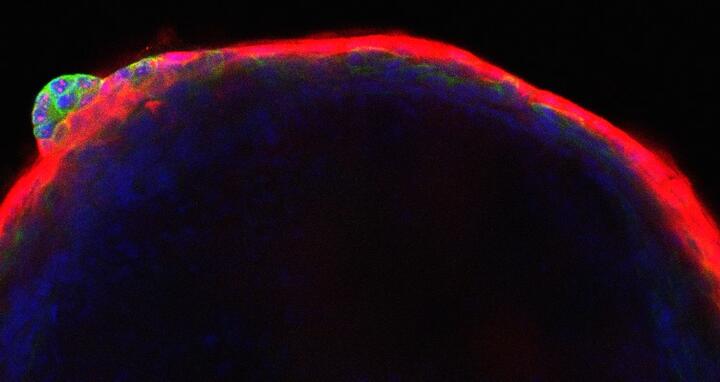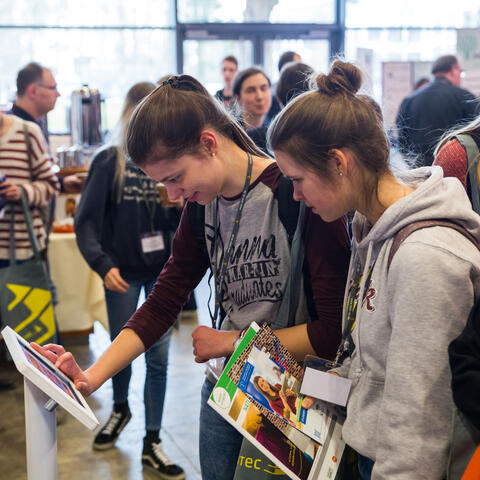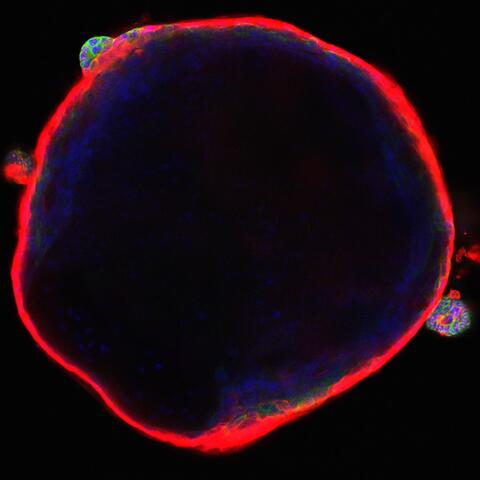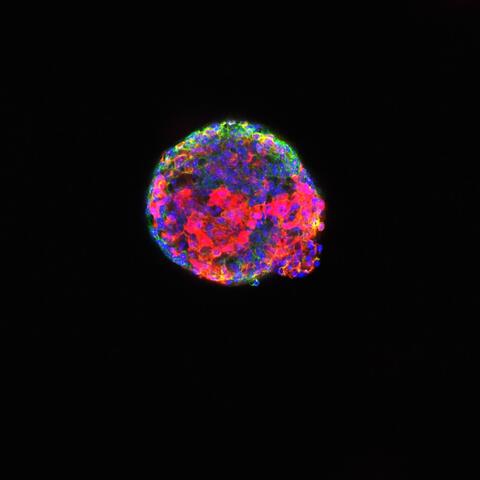“It’s important that we explain our research”
What role do crystals play in basic medical research and how can stem cells be used to fight cancer? On February 22, MDC researchers Walter Birchmeier and Oliver Daumke will be answering questions like these when they each welcome six teachers and groups of schoolchildren into their laboratories. “The interest in current scientific research is huge, but there are few opportunities in normal lessons to really delve into the topic,” says Oliver Daumke, head of the Structural Biology of Membrane-Associated Processes research group. He and his colleague Walter Birchmeier, who leads the Signal Transduction in Development and Cancer research group, therefore both decided to offer workshops at this year’s MINT400 Forum. “I myself am a qualified primary school teacher and I think it’s important that we scientists go out and explain our research to the people,” Daumke explains. “This also applies to my postdocs, four of whom are taking part in this year’s workshop.”
Students at last year's MINT 400 event.
Preparing cultures and evaluating results
The MINT400 Forum takes place on February 21 and 22, 2019, and will be attended by 200 schoolchildren and 100 teachers from MINT-EC schools. This is a network of schools that all place particular importance on the teaching of mathematics and the sciences: EC stands for “excellence.” On the first day, research institutions and companies will present study and career opportunities and provide ideas for designing lessons. On the second day, numerous workshops will take place that give the participants first-hand insight into current research – including at the MDC.
Spheroid 1
Cell cultures from cancer stem cells of mice with basal breast cancer. In the culture dish, the cells grow as three-dimensional spherical "spheroids" that are filled with cells. The cancer stem cells (fluoresceing green) produce beta-catenin – an indication that the Wnt signalling pathway, which is essential for growth, is active.
In Walter Birchmeier’s workshop on the latest research findings regarding stem cells and cancer, postdoctoral student Julian Heuberger will give an introductory lecture on the basics of stem cell biology. The participants will then head into the lab, where they will be split into groups to prepare stem cell cultures. These are then cultivated with antibodies and inhibitors during the lunch break. Finally, the groups will evaluate the experiment and prepare a short presentation on their results.
Spheroid 2
Cell cultures from cancer stem cells of mice with basal breast cancer grow as three-dimensional spherical "spheroids" and change as soon as the Wnt signalling pathway in these cells is inhibited. The spheroids are no longer filled with cells and are surrounded by differentiated cells that no longer divide.
MDC researchers also lecture publicly
Birchmeier and Daumke have both held several of these events for teachers and schoolchildren in the past. The fact they always enjoy getting involved is down to the enthusiasm of the participants. “I am amazed every time at the level of interest in the topic and the enthusiasm with which the groups explain their findings,” says Walter Birchmeier. Daumke adds: “The workshops we offer are special for us, too. The young researchers in my group are always happy to participate.” In his workshop on structural elucidation methods for medicine and health, the participants will be split into several groups to purify and then crystallize proteins. Another postdoctoral student, Tobias Bock-Bierbaum, is responsible for organizing the event. The workshop will be rounded off with a discussion on the role of structural biology in scientific research.
Like all MINT400 Forum events, these MDC workshops are not open to the public. But there are other opportunities for interested Berliners to learn more about research at the MDC: public lectures, for example, at the Zeiss Major Planetarium in Berlin, or the Long Night of the Sciences in the summer both provide opportunities for the MDC’s
many research groups to explain their work to a wider audience.
Further information
Website Mint-EC
Website Birchmeier Lab
Website Daumke Lab








